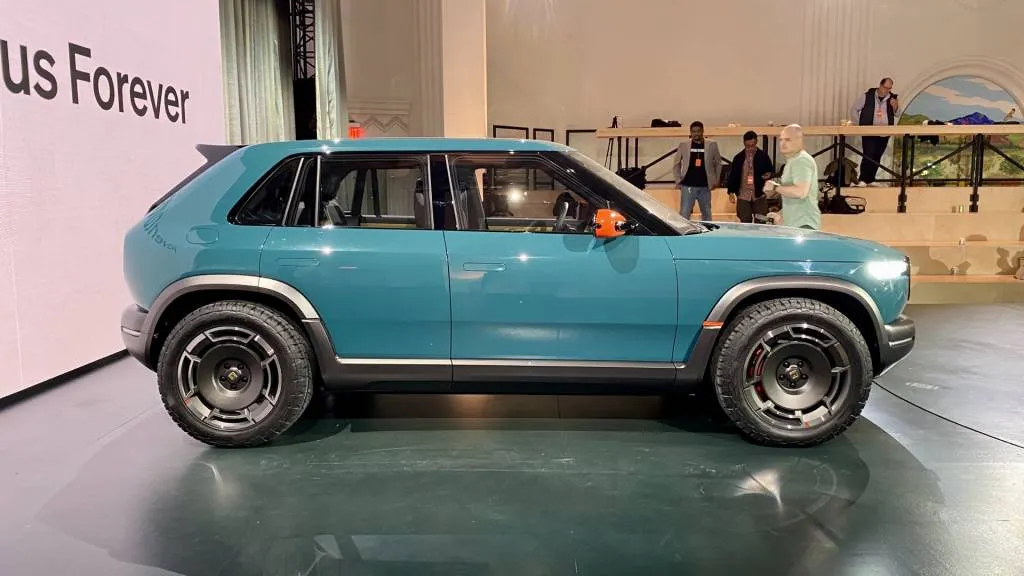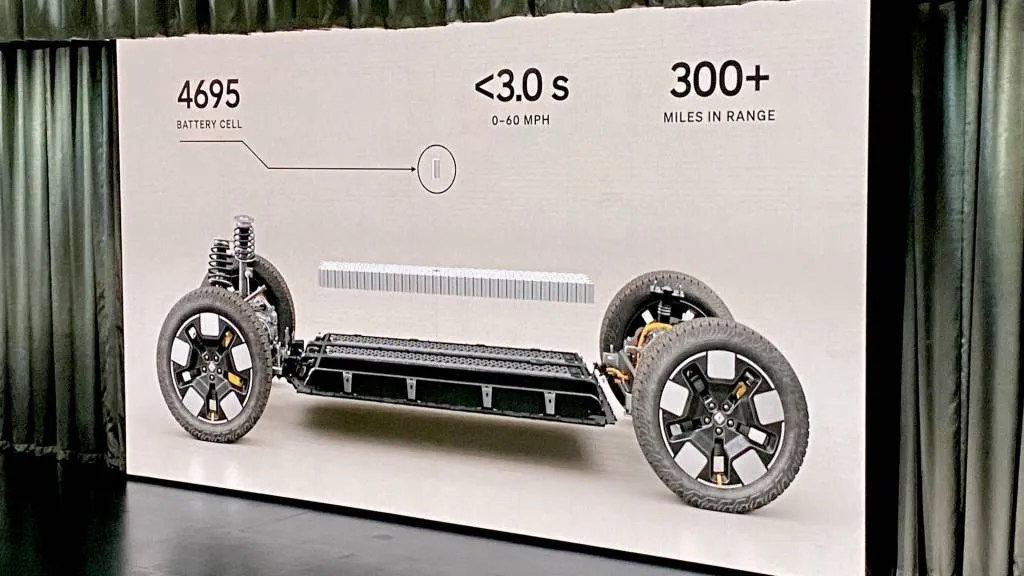- Batteries bound for U.S. Rivian R2 models will come from Arizona
- LG will supply Rivian with 67 gigawatt-hours over five years
- 4695 format is set to be shared with R3, R3X
Next-generation cylindrical battery cells for the Rivian R2 SUV will come from LG Energy Solution and its Arizona plant, the battery supplier and U.S. EV maker confirmed Thursday.
The agreement, LG says, will span five years and total 67 gigawatt-hours in total energy capacity and power R2 models for the North American market. Although LG didn’t note a starting date for supply, the R2 is due to go on sale in 2026.
The Rivian R2-bound cells, at 46 mm in diameter and 95 mm in length, mirror the size that BMW has also committed to. They stand dimensionally different versus Tesla’s 4680 cell format (46 mm x 80 mm), which reportedly carries with it some additional production challenges, the 2170 format (21 mm x 70 mm) used in the Rivian R1 lineup and the Tesla Model Y and Model 3, among others, or Tesla’s original 18650 format (18 mm x 65 mm).
LG noted that the new size enables higher energy density, improved space efficiency, and enhanced safety.
BMW cylindrical battery cells
Rivian confirmed to DriftBreath Reports that the agreement is specifically for high-nickel cells, which generally refers to NCA or NCM lithium-ion chemistries and not the lithium-iron phosphate (LFP) cells that are becoming more popular in cost-conscious base EV models—like versions of the Ford Mustang Mach-E, and in the upcoming next-generation Chevy Bolt EV.
The $45,000 Rivian R2 will be the first true mass-market EV from the U.S. electric vehicle maker, and it could be the model that makes the fledgling company financially sustainable. It’s initially set to be built in Normal, Illinois, alongside the R1T pickup, R1S SUV, and EDV (van) models.
Once production is underway, some R2 production may be shifted to a future Georgia plant that would start making vehicles in 2027—eventually including the compact Rivian R3 family, with its hot-hatch, rally-tinged R3X counterpart.

Rivian R3X
Cells a structural core for Rivian’s future EVs
As Rivian confirmed earlier this year with their reveal, the R2, R3, and R3X are all set to be built around the same next-generation architecture, focused around a structural battery pack with these 4695-format cylindrical cells.
Rivian confirmed to GCR that LG does not have explicit exclusivity as the cell supplier for the R2 lineup. The 67 gigawatt-hours calculates out to about 700,000 vehicles split over five years, assuming nearly 100 kwh per vehicle. So it’s unclear from this initial plan whether R3 and R3X might see some of these cells, too, in the interest of flexibility, or to what degree those somewhat-more-affordable LFP cells might enter the mix.

Rivian R2
LG noted that “within the first year of production” batteries for the R2 will be made at the standalone plant in Arizona.
“This large-scale order from Rivian for 4695 batteries marks a key milestone for LG Energy Solution in expanding its client base within the cylindrical battery segment,” David Kim, the battery firm’s CEO, said in its release on the agreement.
Rivian and LG noting IRA impact
Made just two days after the U.S. Presidential election, the LG announcement mentioned the positive impact of Biden administration EV policy and its Inflation Reduction Act in leading to the Arizona manufacturing push.
“The supply agreement with Rivian is expected to further strengthen LG Energy Solution’s presence in the U.S. market and its plans to actively respond to the IRA by developing and supplying competitive battery cells in a timely manner while expanding into new markets,” stated the battery supplier.

Rivian R3X
The EV maker further pointed to the U.S. sourcing as “aligning with Rivian’s focus on U.S. domestic manufacturing and IRA compliance.”
Rivian reported some additional good news on Thursday. It produced 13,157 vehicles and delivered 10,018 in the third quarter of 2024. Although production has been held back by a component for its Enduro motor unit shared between its R1 models and its van platform, it confirmed that it’s on track for its 2024 delivery outlook of 50,500 to 52,000 vehicles.


